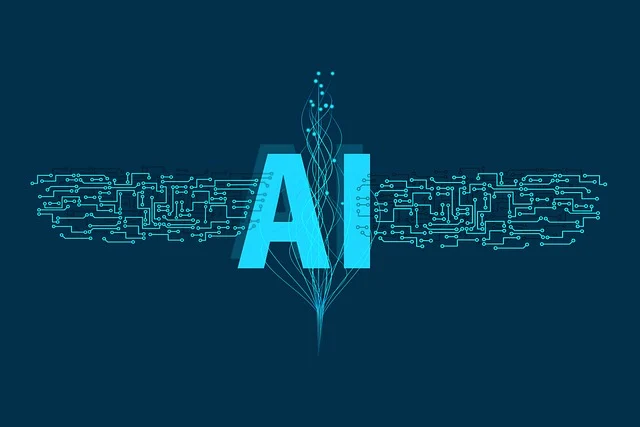The Role of Artificial Intelligence and Machine Learning in Financial Markets
Table of Contents

The advent of artificial intelligence (AI) in financial markets has the potential to revolutionise the landscape, particularly amidst growing economic inequalities. AI offers access to financial tools and personalised investment advice that were once exclusive privileges of the elite on Wall Street. At its core, the democratisation of wealth creation hinges on AI’s ability to facilitate micro-investments tailored to individual aspirations. However, concerns about bias loom large, as AI trained on flawed data could inadvertently perpetuate inequality by favouring the already advantaged. Ethics are paramount in this AI-driven paradigm, with mounting concerns about accountability and transparency as algorithms become integral to the financial system. The reliability of these “Black-box” systems is a pressing question, as their operations dictate market dynamics. Achieving fair competition in a transparent algorithmic environment remains a challenge. The study’s objective is to unravel the complexities of the modern financial landscape shaped by AI, delving into diverse perspectives and rigorous market data analysis. While vigilance towards digital risks is crucial, recognizing AI’s transformative potential is equally important. Beyond algorithms and numerical analyses, the study examines how technology reshapes individuals’ relationships with opportunity, risk, and wealth from a human perspective. Successfully navigating towards a future where AI enriches rather than constrains the human experience in finance necessitates a thorough understanding of the technology at hand.
Introduction
The financial industry is undergoing a profound transformation propelled by the advancement of artificial intelligence (AI). This powerful technology, once a futuristic concept, is now rapidly becoming a reality across all facets of market operations. This research delves into the intricate impacts of AI on financial markets, recognizing both the opportunities and challenges it presents. AI offers a plethora of advantages, ranging from minimising human errors and streamlining workflow to harnessing collective knowledge for enhanced decision-making. Envision a future where complex computations are executed with precision, inefficiencies are swiftly identified and remedied, and every investment decision is informed by insights gleaned from vast datasets. Artificial intelligence is heralding this bright, innovative future. However, this journey of transformation is not without obstacles. Challenges such as systemic risks, ethical considerations, and concerns about data privacy must be addressed. Financial institutions must deploy AI responsibly and judiciously, ensuring that all stakeholders benefit from the effective utilisation of these potent tools. This research critically examines the impact of artificial intelligence on the banking and financial sector, analysing inherent risks, exploring potential advantages, and proposing solutions for the responsible and successful integration of this game-changing technology. Explore the intricate interplay between markets and machines, a dance that has the power to fundamentally reshape the financial landscape. In 2024, the financial landscape has undergone a dramatic shift from the chaotic interactions of the past. Artificial intelligence (AI) now takes centre stage as a precise and powerful conductor, reshaping the very essence of financial activity. Through meticulously calibrated algorithms, AI has revolutionised efficiency, orchestrating transactions in mere nanoseconds that previously took minutes, freeing up valuable time for growth and innovation. Risk management has transitioned from human intuition to a data-driven discipline, with AI harnessing vast amounts of data to drive informed decision-making, surpassing the capabilities of human intuition in the financial realm. These AI-powered algorithms can anticipate market fluctuations and shield portfolios from unexpected turbulence. However, this heightened efficiency comes with inherent risks. As AI increasingly replaces human tasks, concerns arise about system vulnerability. What happens if a single algorithm triggers a domino effect, leading to a coordinated surge in buying or selling? This scenario evokes memories of the 2008 crisis, where interconnectedness amplified a housing market collapse into a global financial catastrophe. Despite the substantial gains facilitated by AI, even the most robust financial systems may become susceptible in this delicate ecosystem prone to ripple effects.

The financial landscape, including financial markets, is undergoing a profound transformation fueled by artificial intelligence (AI) and other cognitive technologies. Financial firms are digitising and transforming their operations to achieve growth and operational efficiency. Advanced AI and machine learning techniques are revolutionising investment options, enhancing customer experiences, and capturing a larger share of assets, with projections indicating substantial investment in AI and cognitive technologies by 2025.
The historical evolution of trading methods and financial markets provides the backdrop for understanding AI’s impact. From traditional face-to-face trades to modern, globally interconnected networks, financial markets have evolved over the centuries. Technical indicators, fundamental analysis, and human intuition were the cornerstones of traditional trading methods, but as markets grew in size and complexity, more advanced strategies became necessary.
AI has fundamentally transformed financial markets, particularly in trading and investing. One of its most significant advancements is the automation of trading operations, notably through high-frequency trading (HFT) algorithms. These algorithms leverage sophisticated mathematical models and real-time data processing to execute thousands of trades per second, reacting to market conditions faster than human traders.
Moreover, AI-powered market-making algorithms enhance market liquidity by continuously quoting buy and sell prices, thereby reducing bid-ask spreads and ensuring more efficient market operations. AI excels in predictive analytics and machine learning, enabling sentiment analysis to evaluate market sentiment by analysing vast amounts of unstructured data from sources like news articles and social media posts. Price forecasting models use historical data and technical indicators to make short and long-term projections, aiding traders and investors in making informed decisions.
AI also plays critical roles in risk management and fraud detection within financial markets. Credit scoring algorithms utilise AI to assess the creditworthiness of borrowers, improving the accuracy of loan decisions. Furthermore, AI-powered anomaly detection systems monitor trade operations for irregular patterns that may indicate market manipulation or fraudulent activity, thereby safeguarding market integrity.
Use of AI in the Financial market
- Risk Assessment: Artificial Intelligence (AI) is revolutionising risk assessment in the financial industry by analysing vast datasets to uncover hidden patterns and make precise predictions about potential risks. Deep learning algorithms and other AI systems excel at identifying patterns and anomalies that human analysts might miss. Consequently, banks can now assess a customer’s creditworthiness more accurately, predict market fluctuations, and detect fraudulent transactions in real-time, leading to a safer and more secure financial environment for all stakeholders.
- Risk Management: With its capability to analyse massive datasets and detect trends and anomalies, AI is transforming financial risk management by enabling proactive risk identification, assessment, and mitigation. This results in increased accuracy, efficiency, and productivity through optimised capital allocation, adjusted risk tolerance, and automated manual processes. However, the implementation of AI also presents distinct challenges and risks that must be addressed to ensure economic stability.
- Fraud Detection: Artificial Intelligence serves as a powerful tool for managing, identifying, and preventing financial market fraud. By accelerating fraud detection, AI can pinpoint irregularities in real-time banking transactions, app usage, payment methods, and other financial activities. Through the analysis of large datasets, AI enables proactive hazard identification, evaluation, and mitigation. AI-powered fraud detection systems can scrutinise vast volumes of data to identify suspect or fraudulent transactions, enhancing accuracy and minimising false positives to safeguard consumers and businesses.
- Credit Decisions: AI is transforming credit decisions in the financial industry by leveraging machine learning algorithms to evaluate extensive financial data swiftly and accurately. By analysing various variables such as government-issued identification documents and bank records, AI can assess a potential customer’s creditworthiness with precision. AI-powered credit risk management enhances decision-making efficiency by providing quicker, more accurate, and more reliable credit risk evaluations compared to traditional methods. Additionally, AI eliminates biases and human errors, leading to increased consumer satisfaction and lender profitability from loans.
- Trading: The integration of artificial intelligence (AI) into stock trading optimises profitability by minimising risks and maximising profit opportunities. This enhances trading accuracy and provides valuable insights, making financial markets more accessible and efficient through the introduction of innovative financial products and automated trading choices.
Application of AI in the Financial Market

Artificial Intelligence (AI) is profoundly reshaping the landscape of trading, risk management, investment decision-making, and credit scoring within the finance sector. Its influence is pervasive across various aspects, driving innovation, and enhancing efficiency. In trading and risk management, AI’s impact is substantial, facilitating improved decision-making, the creation of novel financial products, and process automation. Trading algorithms are designed, stock values predicted, and innovative financial instruments developed, thereby democratising access to finance. However, this transformative technology is still in its nascent stages, fraught with challenges such as inherent biases and potential over-reliance.
For instance, KPMG utilises AI for credit risk modelling, fraud detection, and analysing trader behaviour. In investment decision-making and portfolio management, AI’s advent brings about a paradigm shift by optimising trade margins and providing valuable insights into complex trading opportunities. Its benefits include seizing lucrative prospects while mitigating risks and achieving higher accuracy with reduced research time. Nonetheless, there are pertinent concerns surrounding the sole reliance on AI methods for decision-making, necessitating a careful evaluation of its drawbacks.
Moreover, in credit scoring, AI is revolutionising traditional processes by streamlining operations, augmenting decision-making capabilities, and delivering personalised services. Its applications span from personalised recommendation delivery to seamless fraud detection and round-the-clock client interactions. Nevertheless, challenges persist, notably concerning biases, discrimination, and excessive dependency on AI, which can undermine the quality of decision-making processes.
In essence, while AI heralds a new era of efficiency and innovation in finance, its widespread adoption necessitates a nuanced understanding of its capabilities, limitations, and ethical considerations. Efforts to address these challenges are crucial to harnessing the full potential of AI while ensuring responsible and equitable financial practices.
Strengths:
- Artificial intelligence (AI) offers robust capabilities in enhancing security measures and combating illicit activities within the financial sector. By analysing diverse data sources like transaction records, social media, and dark web forums, AI can identify patterns and connections indicative of financial crimes such as money laundering.
- AI streamlines processes and automates tasks, thereby reducing the costs associated with financial advisory services for clients.
- The integration of AI enables the creation of innovative financial products, such as robo-advisors and algorithmic trading methods, making the financial industry more accessible to a broader audience.
- By automating repetitive tasks like data processing and analysis, AI frees up financial professionals to focus on more strategic and high-value activities.
Weaknesses:
- Ethical concerns regarding privacy, bias, and transparency may arise from the application of AI in finance, necessitating careful consideration and mitigation strategies.
- Over-reliance on AI may lead to diminished human judgement and oversight, potentially posing risks to financial decision-making and stability.
- The complexity of AI models may pose challenges for financial experts in their effective utilisation due to difficulties in understanding and interpreting their outputs.
- Regulatory hurdles related to AI adoption in finance may emerge as governments and regulatory bodies seek to establish guidelines and criteria for its responsible use.
Opportunities:
- AI and machine learning (ML) offer significant opportunities for enhancing risk management and transforming financial markets by enabling more accurate predictions of economic, financial, and risk events.
- Real-time decision-making capabilities empowered by AI enable financial professionals to respond swiftly to evolving market conditions and make informed judgments.
- AI facilitates the delivery of personalised services and recommendations, enhancing customer satisfaction and loyalty while enabling financial institutions to better understand and cater to their clients’ needs.
- The adoption of AI enhances the accuracy of risk assessments, empowering financial professionals to effectively manage risks and anticipate and mitigate potential threats to financial stability.
Threats:
- AI systems are susceptible to cyberattacks, posing risks of compromising sensitive financial data and transactions, thereby threatening financial stability and eroding customer trust.
- The widespread deployment of AI in finance may lead to job displacement and necessitate reskilling and upskilling efforts to adapt to evolving workforce requirements.
- Risks arise if AI models are trained on erroneous, incomplete, or biassed data, undermining their effectiveness in the financial market due to the critical dependence on data quality and integrity.
- The utilisation of AI may introduce or exacerbate systemic risks, leading to broader market disruptions or volatility due to the interconnected nature of financial systems.

As the financial landscape evolves, artificial intelligence (AI) emerges as a transformative tool, particularly in portfolio management. This study explores the practical applications of AI in this domain, focusing on its influence on asset allocation strategies, diversification optimization, and risk management frameworks. The integration of AI promises to revolutionise investment decisions by leveraging data-driven insights.
In trading and risk management, AI enhances liquidity management, facilitates efficient execution of large orders with minimal market impact, and enables effective risk control and order flow management. While it enhances liquidity under normal market conditions, it also introduces the risk of market convergence and flash crashes during periods of stress.
AI-powered lending models streamline credit underwriting processes, reducing costs and extending credit access to individuals with limited credit history, thus promoting financial inclusion. However, the use of AI models in lending raises concerns regarding potential biases, discriminatory practices, and unjust outcomes due to insufficient or biassed data inputs.
In blockchain finance, AI-driven approaches enhance efficiency in decentralised ledger technology (DLT) systems and improve smart contract capabilities. Yet, challenges persist regarding data quality and integrity, posing risks to investor confidence, market integrity, and system stability.
AI-based decision support systems (DSS) offer a robust alternative to traditional investment techniques, leveraging real-time data analysis to forecast market trends, assess risks dynamically, and automate various tasks. By analysing vast amounts of structured and unstructured data from diverse sources, AI excels in predictive analytics, enabling portfolio optimization and informed investment decisions.
Moreover, AI harnesses social media and news sources to analyse investor behaviour, sentiment, and emotions, enhancing portfolio diversification and incorporating human judgement into investment strategies.
While AI-driven personalised services enhance customer satisfaction and loyalty, they also enable financial institutions to better understand and serve their clients. Real-time decision-making capabilities empower financial professionals to respond swiftly to market changes, maximising opportunities and mitigating risks effectively.
However, there remains a risk of inaccurate or biassed lending outcomes due to the reliance on AI models and inadequate data in lending processes, highlighting the importance of ethical considerations and data integrity safeguards in AI adoption within the financial sector.
